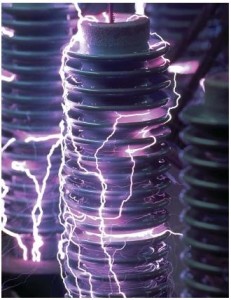Electric charge
An electric charge is the physical property of matter that causes it to experience a force when placed in an electromagnetic field. There are two types of electric charges, positive and negative. The positively charged matter are driven away from other positively charged matter. However, they are attracted to negatively charged matter.
The same is true with the negatively charged matter, they are driven away from other negatively charged matter and attracted to the positively charged matter. If an object has an excess of electrons it will be negatively charged, otherwise, it will be either positively charged or uncharged.
An electric charge is the fundamental property of matter that displays electrostatic attraction or repulsion in the presence of other matter. Electric charge is a characteristic property of many subatomic particles. Michael Faraday was the first to note the discrete nature of electric charge in his electrolysis experiments.
After you break an object down into molecules, they can then be broken down into atoms. This is where you discover particles of electric charge. Most science textbooks inform us that solid objects are made of atoms. Objects are made of equal quantities of positive and negative charge, and objects stay together because of the attraction between the quantities of opposite charge inside them. All chemical bonds are electrical in nature.
Electric current
An electric current is the flow of electric charge. This charge is usually carried by moving electrons through a wire, in the case of electric circuits. It can also be carried by ions in an electrolyte, or by both ions and electrons such as in a plasma.
The International System of Units (SI) for measuring an electric current is the ampere, which is the flow of electric charges through a surface at the rate of one coulomb per second. Electric current can be measured using an ammeter.
Electric currents are responsible for several outcomes including, heating and magnetic fields which are widely used for motors, inductors and generators.
Related articles:
Is Electricity a Type of Energy?




